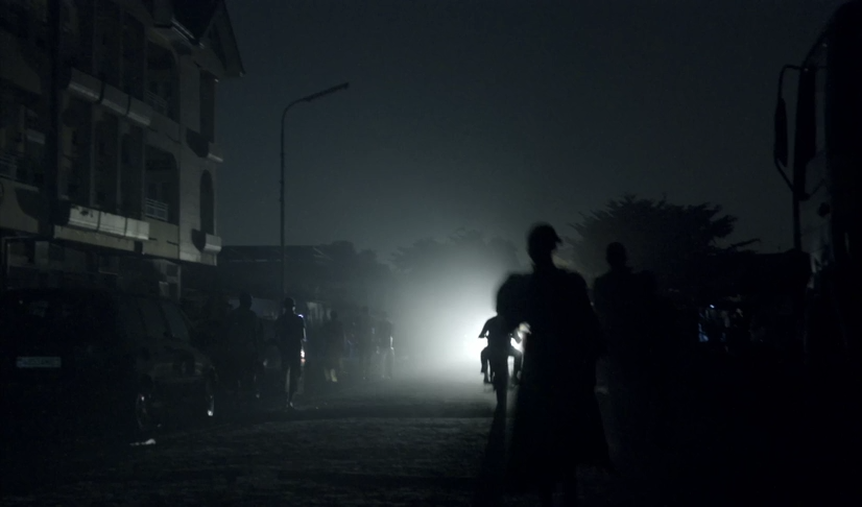|
An engrossing saga of maternal desperation which evolves as it progresses, Alain Gomis' Felicité is a challenging piece of cinema which is multi-faceted in its formalism. Beginning as a painstakingly-grounded personal journey built around realism, Alain Gomis' film slowly and methodically transforms into an impressionistic document of the Congo itself, a bold and brilliant choice which intrinsically links the struggles of our main protagonist Felicite and what she experiences with that of her home, the Congo. The narrative itself, centered around a young mother's frantic search through the streets of Kinshasha to raise money to help her injured son, is eschewed and subverted, with Alain Gomis contrasting the various lights and sounds of this city with the struggles of this individual, painting a vivid, sometimes horrific urban tapestry in which charity and selflessness are hard to find. A deeply personal struggle juxtaposed against a vivid and sensual portrait of the community in which she inhabits, Felicité is a film in which its thematic assertions aren't pronounced; yet through this story we are given a vivid portrait of a woman quietly fighting for a better life, a character who manages to remain hopeful and spiritually-centered despite many trials and tribulations, one who eventually finds some semblance of peace and happiness by the time the credits roll. While overlong, Gomis' film is impressive due to its tonal range; a film which doesn't simply dwell in miserbalism, offering up a sensual document of the Congo that manages to be dire yet hopeful, sensual, and alive. While the precise thematic assertions remain opaque, Alain Gomis' Felicite is a bold piece of cinema which challenges the viewer through its personal story of one woman's dignified attempt to live a full and happy life in spite of the harsh realities of the world she inhabits.
0 Comments
Leave a Reply. |
AuthorLove of all things cinema brought me here. Archives
June 2023
|

 RSS Feed
RSS Feed
